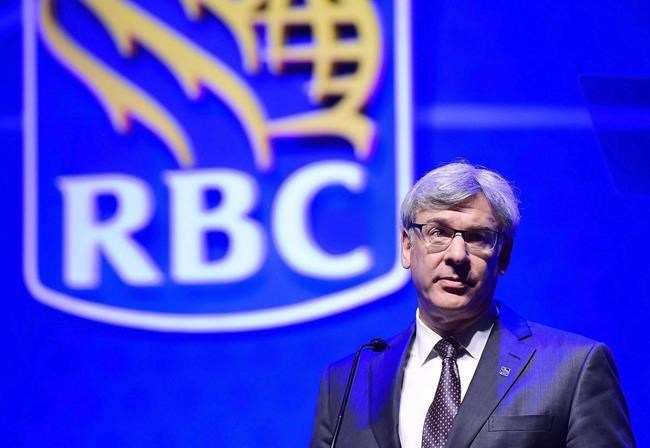TORONTO — Royal Bank of Canada's chief executive officer said Thursday that an "orderly transition" to a net-zero economy is crucial, as he faced questions about the bank's climate strategy and ongoing financing of fossil fuels during its annual shareholder meeting.
"We can't be unsuccessful in this journey," CEO Dave McKay said.
The bank, which is the largest lender to fossil fuels in Canada, was criticized for not moving fast enough on its net-zero activities.
McKay was also pressed on issues like the effects of oilsands extraction and the Coastal GasLink pipeline project.В
RРЎА¶КУЖµ acts as a financial adviser to the pipeline project and also provides working capital. Wet’suwet’en hereditary chiefs, who don't support the pipeline, made their way to Toronto to ask questions about the bank's funding of it, but left unsatisfied.В
Despite the pushback, McKay said the majority of Indigenous communities do support the pipeline. There are 20 Indigenous groups along the route that approve of the pipeline.
"(The pipeline) presents very significant growth and economic opportunity for the communities that (it) passes through," he said.В
Meanwhile, in his prepared remarks, McKay emphasized RРЎА¶КУЖµ's commitment to reducing global emissions in its operations by 70 per cent by 2025.
McKay said the bank is working closely with its clients on their net-zero strategies and intends on publishing emission reduction goals for its oil and gas, utilities and automotive portfolios this fall.В
He added that a better approach to public-private collaboration is needed to address the transition to a net-zero economy.В
Climate protests took place outside the meeting, which was changed to a virtual-only event late Wednesday.В
This report by The Canadian Press was first published April 7, 2022.
Companies in this story: (TSX:RY)
Adena Ali, The Canadian Press




